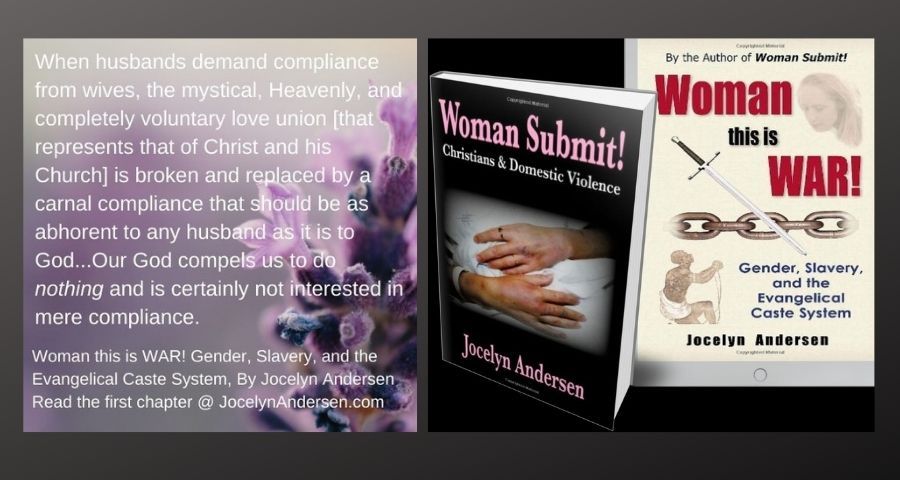John 5:17 But Iesous answered them My Father works till now and I work 18: Therefore the
Jews sought the more to kill him because he not only had broken the Sabbath but
said also that Theos was his Father making himself equal with Theos[1]
[1] Jesus not only claimed to be equal with
God by saying God was his father, but later, in John 8:28, he made a clear statement claiming
to be God. The “he” in John 8:28 is a translator addition and is not
found in the original. Jesus clearly claimed Jehovahistic identity when He
identified Himself as the “I AM” of the burning bush. The Jews had no such oxymoronic
issues as complementarian (female subordination) teachers have with
qualifying degrees of equality (equal-but-different-theory) which do not exist. One cannot have equality and
hierarchy at the same time. The two concepts are mutually exclusive.
Untranslated Words in this Chapter or passage of the HHBC
Iesous Pronounced Ee-A-Soos G2424 translated Jesus: Yeshua is the Hebrew name, and its English spelling is “Joshua.” Iesous is the Greek transliteration of the Hebrew name, and its English spelling is “Jesus.” Thus, the names “Joshua” and “Jesus” are essentially the same; both are English pronunciations of the Hebrew and Greek names for our Lord. For examples of how the two names are interchangeable, see Acts 7:45 and Hebrews 4:8 in the KJV. In both cases, the word Iesous refers to the Old Testament character Joshua
Theos G2316 Deity; god; The reason the word, Theos, is largely left untranslated in this commentary, is to put to rest erroneous teaching that the word must be prefaced by the definite article, “ho,” in order to be referring to Yahweh. In fact, most New Testament scripture references to Theos are not introduced using the definite article, “ho,” but even so, it cannot be argued when the Almighty is being referenced—especially in the case of John 1:1, where John, a Jew who would never commit blasphemy by following anyone who was called “A” god, calls Jesus God. John was specifically stating that Jesus is YHWH [Yahweh].
Special Features of the HHBC
1. The main body of
scripture text in this commentary is based on the Received Text (Textus
Receptus) of the NT and the Ben Chayyim Masoretic text of the OT as found in
the Original *Strong’s Concordance, 1894, by James Strong, and compared
diligently with the work of respected scholars.
2. **Archaic language
is updated in most cases, but The AV is followed unchanged where the language
and sense of the translation is clear to the modern reader.
3. Where a Hebrew or
Greek word has no good English equivalent, the original word is left
untranslated, in italics, and, in
some cases but not all, with the *Strong’s Greek [G] or Hebrew [H] reference
number notated beside it (see list of untranslated words below).
4. Where the Old
Covenant is quoted in the New Testament, the Hebrew words may be used and left
untranslated
5. In New Testament
quotes of Old Testament that include the word “Lord” in referring to Jehovah
[YHWH], the word LORD will be capitalized
6. Proper names and
the names of God are often left untranslated
7. The names and
titles of God are in bold print
8. The words of Jesus
are in bold print
9. Scripture
cross-references are noted in line with the text
10. There is little
punctuation used in the main body of the scripture-commentary text
11. Brackets [ ]
indicate alternate rendering or short commentary
12. Longer commentary
is located in footnotes
*20th
Century editions of this work, such as, The New Updated Strong’s, and, The
Strongest Strong’s, are not referenced in the HHBC as they do not correspond to
the Textus Receptus or the Ben Chayyim Masoretic Text this commentary is based
upon.
** Historically
loved, poetic and extraordinarily beautiful, passages of the King James
Version, such as portions of the Psalms and Beatitudes, etc., will be left
largely unchanged except for where updating archaic language would not
interrupt the poetic flow.
Her study entitled, Trinity Marriage and the Godhead, (Volume 1 of the God Women Ministry series) examines in detail the equal-but-different-theory as it relates to Jesus and the complementarian claim of hierarchy within the eternal Godhead.
About the Author: Jocelyn
Andersen is best known for her book, Woman
Submit! Christians & Domestic Violence.
She is also editor of the Hungry
Hearts Online Bible Commentary
For more information about her work, visit her website at www.JocelynAndersen.com
Her study entitled, Trinity Marriage and the Godhead, (Volume 1 of the God Women Ministry series) examines in detail the equal-but-different-theory as it relates to Jesus and the complementarian claim of hierarchy within the eternal Godhead.




No comments:
Post a Comment